- Home
- J. R. Ward
Where Winter Finds You
Where Winter Finds You Read online
PRAISE FOR J. R. WARD AND HER BLACK DAGGER BROTHERHOOD SERIES
“Frighteningly addictive.”
—Publishers Weekly
“Ward brings on the big feels.”
—Booklist
“J. R. Ward is the undisputed queen… Long live the queen.”
—Steve Berry, New York Times bestselling author
“J. R. Ward is a master!”
—Gena Showalter, New York Times bestselling author
“Fearless storytelling. A league all of her own.”
—Kristen Ashley, New York Times bestselling author
“J. R. Ward is one of the finest writers out there—in any genre.”
—Sarah J. Maas, #1 New York Times bestselling author
“Ward is a master of her craft.”
—New York Journal of Books
Thank you for downloading this Simon & Schuster ebook.
Get a FREE ebook when you join our mailing list. Plus, get updates on new releases, deals, recommended reads, and more from Simon & Schuster. Click below to sign up and see terms and conditions.
CLICK HERE TO SIGN UP
Already a subscriber? Provide your email again so we can register this ebook and send you more of what you like to read. You will continue to receive exclusive offers in your inbox.
To:
A pair of perfect souls reunited,
happily ever after.
GLOSSARY OF TERMS AND PROPER NOUNS
ahstrux nohtrum (n.)
Private guard with license to kill who is granted his or her position by the King.
ahvenge (v.)
Act of mortal retribution, carried out typically by a male loved one.
Black Dagger Brotherhood (pr. n.)
Highly trained vampire warriors who protect their species against the Lessening Society. As a result of selective breeding within the race, Brothers possess immense physical and mental strength, as well as rapid healing capabilities. They are not siblings for the most part, and are inducted into the Brotherhood upon nomination by the Brothers. Aggressive, self-reliant, and secretive by nature, they are the subjects of legend and objects of reverence within the vampire world. They may be killed only by the most serious of wounds, e.g., a gunshot or stab to the heart, etc.
blood slave (n.)
Male or female vampire who has been subjugated to serve the blood needs of another. The practice of keeping blood slaves has been outlawed.
the Chosen (pr. n.)
Female vampires who had been bred to serve the Scribe Virgin. In the past, they were spiritually rather than temporally focused, but that changed with the ascendance of the final Primale, who freed them from the Sanctuary. With the Scribe Virgin removing herself from her role, they are completely autonomous and learning to live on earth. They do continue to meet the blood needs of unmated members of the Brotherhood, as well as Brothers who cannot feed from their shellans or injured fighters.
chrih (n.)
Symbol of honorable death in the Old Language.
cohntehst (n.)
Conflict between two males competing for the right to be a female’s mate.
Dhunhd (pr. n.)
Hell.
doggen (n.)
Member of the servant class within the vampire world. Doggen have old, conservative traditions about service to their superiors, following a formal code of dress and behavior. They are able to go out during the day, but they age relatively quickly. Life expectancy is approximately five hundred years.
ehros (n.)
A Chosen trained in the matter of sexual arts.
exhile dhoble (n.)
The evil or cursed twin, the one born second.
the Fade (pr. n.)
Nontemporal realm where the dead reunite with their loved ones and pass eternity.
First Family (pr. n.)
The King and Queen of the vampires, and any children they may have.
ghardian (n.)
Custodian of an individual. There are varying degrees of ghardians, with the most powerful being that of a sehcluded female.
glymera (n.)
The social core of the aristocracy, roughly equivalent to Regency England’s ton.
hellren (n.)
Male vampire who has been mated to a female. Males may take more than one female as mate.
hyslop (n. or v.)
Term referring to a lapse in judgment, typically resulting in the compromise of the mechanical operations of a vehicle or otherwise motorized conveyance of some kind. For example, leaving one’s keys in one’s car as it is parked outside the family home overnight, whereupon said vehicle is stolen.
leahdyre (n.)
A person of power and influence.
leelan (adj. or n.)
A term of endearment loosely translated as “dearest one.”
Lessening Society (pr. n.)
Order of slayers convened by the Omega for the purpose of eradicating the vampire species.
lesser (n.)
De-souled human who targets vampires for extermination as a member of the Lessening Society. Lessers must be stabbed through the chest in order to be killed; otherwise they are ageless. They do not eat or drink and are impotent. Over time, their hair, skin, and irises lose pigmentation until they are blond, blushless, and pale-eyed. They smell like baby powder. Inducted into the society by the Omega, they retain a ceramic jar thereafter into which their heart was placed after it was removed.
lewlhen (n.)
Gift.
lheage (n.)
A term of respect used by a sexual submissive to refer to their dominant.
Lhenihan (pr. n.)
A mythic beast renowned for its sexual prowess. In modern slang, refers to a male of preternatural size and sexual stamina.
lys (n.)
Torture tool used to remove the eyes.
mahmen (n.)
Mother. Used both as an identifier and a term of affection.
mhis (n.)
The masking of a given physical environment; the creation of a field of illusion.
nalla (n., f.) or nallum (n., m.)
Beloved.
needing period (n.)
Female vampire’s time of fertility, generally lasting for two days and accompanied by intense sexual cravings. Occurs approximately five years after a female’s transition and then once a decade thereafter. All males respond to some degree if they are around a female in her need. It can be a dangerous time, with conflicts and fights breaking out between competing males, particularly if the female is not mated.
newling (n.)
A virgin.
the Omega (pr. n.)
Malevolent, mystical figure who has targeted the vampires for extinction out of resentment directed toward the Scribe Virgin. Exists in a nontemporal realm and has extensive powers, though not the power of creation.
phearsom (adj.)
Term referring to the potency of a male’s sexual organs. Literal translation something close to “worthy of entering a female.”
Princeps (pr. n.)
Highest level of the vampire aristocracy, second only to members of the First Family or the Scribe Virgin’s Chosen. Must be born to the title; it may not be conferred.
pyrocant (n.)
Refers to a critical weakness in an individual. The weakness can be internal, such as an addiction, or external, such as a lover.
rahlman (n.)
Savior.
rythe (n.)
Ritual manner of asserting honor, granted by one who has offended another. If accepted, the offended chooses a weapon and strikes the offender, who presents him—or herself without defenses.
the Scribe Virgin (pr. n.)
Mystical force who previously was counselor to the King
as well as the keeper of vampire archives and the dispenser of privileges. Existed in a nontemporal realm and had extensive powers, but has recently stepped down and given her station to another. Capable of a single act of creation, which she expended to bring the vampires into existence.
sehclusion (n.)
Status conferred by the King upon a female of the aristocracy as a result of a petition by the female’s family. Places the female under the sole direction of her ghardian, typically the eldest male in her household. Her ghardian then has the legal right to determine all manner of her life, restricting at will any and all interactions she has with the world.
shellan (n.)
Female vampire who has been mated to a male. Females generally do not take more than one mate due to the highly territorial nature of bonded males.
symphath (n.)
Subspecies within the vampire race characterized by the ability and desire to manipulate emotions in others (for the purposes of an energy exchange), among other traits. Historically, they have been discriminated against and, during certain eras, hunted by vampires. They are near extinction.
talhman (n.)
The evil side of an individual. A dark stain on the soul that requires expression if it is not properly expunged.
the Tomb (pr. n.)
Sacred vault of the Black Dagger Brotherhood. Used as a ceremonial site as well as a storage facility for the jars of lessers. Ceremonies performed there include inductions, funerals, and disciplinary actions against Brothers. No one may enter except for members of the Brotherhood, the Scribe Virgin, or candidates for induction.
trahyner (n.)
Word used between males of mutual respect and affection. Translated loosely as “beloved friend.”
transition (n.)
Critical moment in a vampire’s life when he or she transforms into an adult. Thereafter, he or she must drink the blood of the opposite sex to survive and is unable to withstand sunlight. Occurs generally in the mid-twenties. Some vampires do not survive their transitions, males in particular. Prior to their transitions, vampires are physically weak, sexually unaware and unresponsive, and unable to dematerialize.
vampire (n.)
Member of a species separate from that of Homo sapiens. Vampires must drink the blood of the opposite sex to survive. Human blood will keep them alive, though the strength does not last long. Following their transitions, which occur in their mid-twenties, they are unable to go out into sunlight and must feed from the vein regularly. Vampires cannot “convert” humans through a bite or transfer of blood, though they are in rare cases able to breed with the other species. Vampires can dematerialize at will, though they must be able to calm themselves and concentrate to do so and may not carry anything heavy with them. They are able to strip the memories of humans, provided such memories are short-term. Some vampires are able to read minds. Life expectancy is upward of a thousand years, or in some cases, even longer.
wahlker (n.)
An individual who has died and returned to the living from the Fade. They are accorded great respect and are revered for their travails.
whard (n.)
Equivalent of a godfather or godmother to an individual.
CHAPTER ONE
Raul Julia—no relation to the late, great actor—saw his first angel on a cold night in Caldwell in the middle of a December snowstorm.
And it was all because of a BMW.
He had come to a stop at the intersection of Main and Tenth, his long wool coat buttoned up to his throat, his scarf tucked in tight across his chest, the toes of his feet chilly even in his boots. Snowflakes, which had started out at lunchtime dancing in the winter air, had soon put on so much weight that they could no longer perform arabesques on the wind currents. They were also in a hurry now, wasting their freedom in a rush to get to the ground, not realizing that the fall was the very best part of their lives, and that once that descent was over, they were going to be trod upon, sped over, plowed into dirty piles like they were degenerates as opposed to floating miracles.
From one-in-a-million to a nuisance of overcrowding that had to be dealt with by Caldwell Public Works trucks.
It was a sad thing, really. Rather like children turning into adults.
As Raul stood on that corner, trapped in place by a red Do Not Cross palm that flashed in his direction, he got so tired of the cold gusts in his face that he turned and put his back to the traffic light. Due to the accommodation made to the visually impaired, a sound would alert him when it was time to go, but so would the traffic, which was slow and trudging, as if the cars didn’t like the weather any more than he did. In better conditions, he would have crowded the curb and eagle-eyed any opportunity to jaywalk—he had been born in Brooklyn back before Giuliani had cleaned up the five boroughs for a short while, so he was an expert at reading traffic patterns—but in winter, the rules changed. Four-wheel drive did not mean four-wheel stop, and the skidding potential added a dangerous element to any chances you took.
And Raul was the kind of person who had a lot to live for. Especially tonight.
In his pocket, he had a small black box, leather-bound on the outside, velvet-cushioned on the inside. He had married his Ivelisse thirty-two years ago, and though their anniversary wasn’t until April, and though it wasn’t a special one like twenty-five or thirty or even fifty, he had passed by a jewelry store at lunch and stopped. The window had been chocked full of gold and platinum wares that were wearable, bright lights inset into the frame to make the diamonds gleam. There had been a lot of engagement rings, in preparation for the season of asking—as opposed to the season of saying I do, which, according to his youngest daughter, Alondra, was in June—but there had also been a number of crosses.
Pretty as the show was, Raul had kept on going, determined to return on time to his job as an actuary at an insurance company. Going along the packed snow with the others who had dared to venture out at noontime, he had thought of the crosses, although not one of them in particular, but rather all of them in a group. They had been relegated to a cluster down low on the right, a congregation of perhaps ten, all of them overshadowed by those rings. For some reason, he couldn’t get them out of his mind, to the point where he began to become paranoid that something bad was going to happen. Even his normal workload, which was often too much, couldn’t distract him away from the preoccupation.
Maybe it was a sign. Maybe it was a portent.
He had those kinds of thoughts a lot, however. Then again, he analyzed people’s death rates for a living, performing the risk assessments on which life-insurance-premium calculations were based—and after you do that for twenty years, you did get a little flinchy. Every mole on his body was a melanoma, for example. Each skip of his heart was an impending myocardial infarction. Oh, and that headache he’d had when he’d been stuck in traffic coming into work this morning was definitely the precursor to a stroke.
Although put like that, maybe it was all a little crazy.
Maybe he needed to take some time off.
Still, as soon as he’d gotten his work done for the day, at a little past five, he’d put on his coat, said goodbye to his coworkers, and hurried out of the building. Instead of heading to the open-air car park six blocks over, however, he’d gone back to the jewelry store. He’d decided, as he’d slumped along in the cold, that it was going to be closed—but he should have known better. It was the Christmas season, after all, and as he’d pushed his way into the store, the narrow and relatively shallow shop was crowded with people. He’d had to wait for a good fifteen minutes before he caught a salesperson’s eye, and when all she could do was shrug at him, like she couldn’t promise she’d be free anytime before New Year’s, he’d checked his watch and debated leaving.
The girl who’d finally waited on him had been harried and exhausted, like she’d had a long lineup of late closes just like this one, and had nothing to look forward to except more of the same. He’d decided she had to have been his Alondra’s age
, and she’d had a nice-sized diamond on her ring finger, no doubt something she had helped her fiancé get a store discount on. Her eyes had been tired, but she had made the effort to smile, and that, more than the time it had taken to walk to the store, or the time he had spent waiting, or even that which he was still wondering if he should purchase, was what made him stay.
When he had finished the transaction—after she had given him a nice discount—he had told her he wished her well with her nuptials. She had truly beamed then and talked about the man she was going to marry, the wedding planning, the dress. It was a deluge that he could tell she had to keep inside while she was working, and her joy, her youth, and all the things that were yet to come to her, the good and the bad, had made his eyes sting with tears.
It had been a relief to step outside and be able to blame the watering on the cold.
And now he was here, at this intersection, with a diamond cross his Ivelisse was going to kill him for buying for her, and a broken heart.
Alondra would have been twenty-three in January. And the cross wasn’t about any random wedding anniversary, even though he told himself it was, even though he had to believe it was—because otherwise he’d bought the thing to commemorate his daughter’s death four years ago on a snowy night just like this one, in the back of a car being driven too fast on ice, by her very best friend, who had survived.
Which would be rather morbid, wouldn’t it.
As he considered the accident that had taken such a precious gift from him and his wife and the other kids, he reflected that there were a number of dangerous things that could be predicted in life. If you took too many risks with your health, with your body, with your finances, with your habits, you were, statistically speaking, liable to get caught in a situation of your own design that came out badly. He knew this. He studied this; he trended this; he understood this from an overarching, objective viewpoint that was god-like. Yet none of that had mattered when his cousin Fernando had knocked on his front door at one a.m., on that snowy December night. The instant Raul had opened that door and seen that CPD hat being removed from that head, he had known.

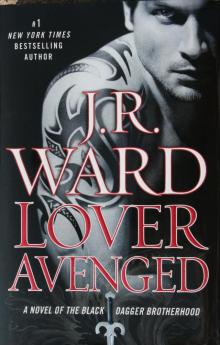 Lover Avenged
Lover Avenged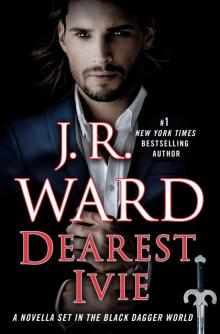 Dearest Ivie
Dearest Ivie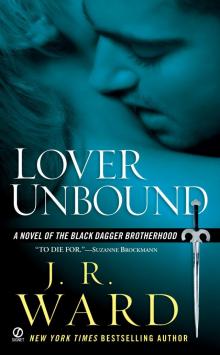 Lover Unbound
Lover Unbound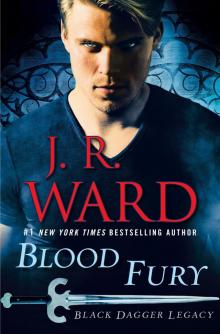 Blood Fury
Blood Fury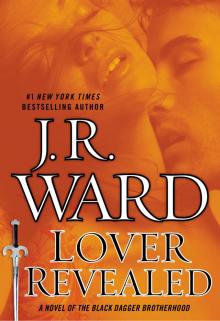 Lover Revealed
Lover Revealed The Thief
The Thief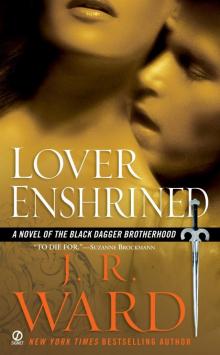 Lover Enshrined
Lover Enshrined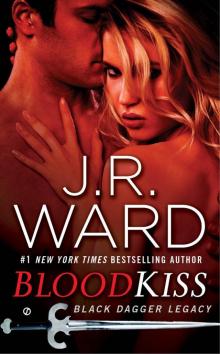 Blood Kiss
Blood Kiss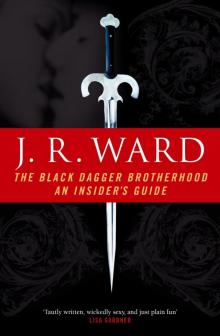 An Insiders Guide
An Insiders Guide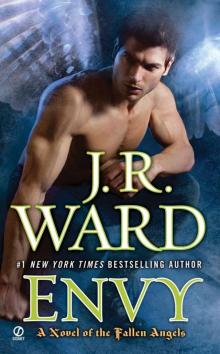 Envy
Envy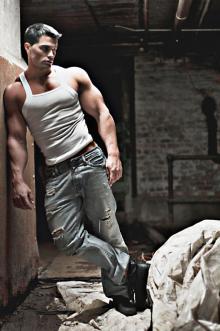 Crave
Crave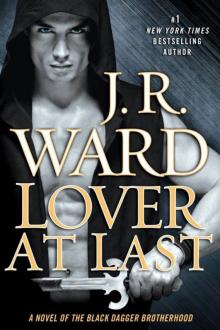 Lover At Last
Lover At Last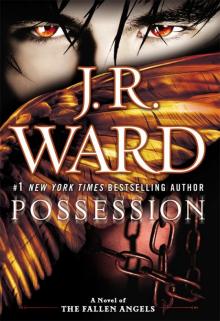 Possession
Possession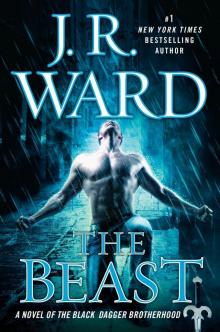 The Beast
The Beast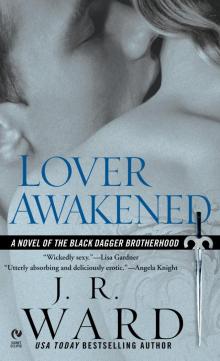 Lover Awakened
Lover Awakened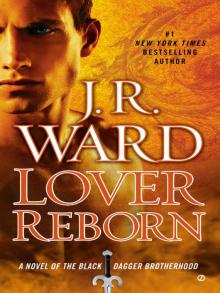 Lover Reborn
Lover Reborn The King
The King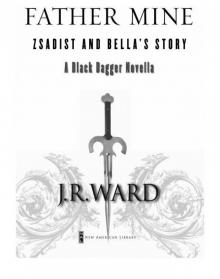 Father Mine
Father Mine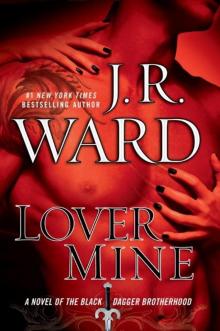 Lover Mine
Lover Mine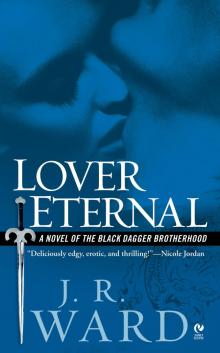 Lover Eternal
Lover Eternal The Chosen
The Chosen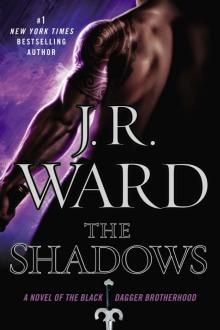 The Shadows
The Shadows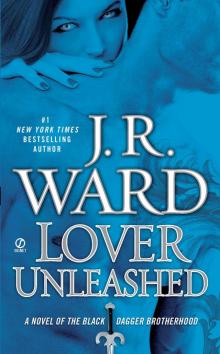 Lover Unleashed
Lover Unleashed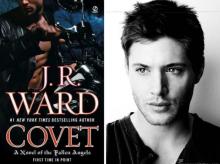 Covet
Covet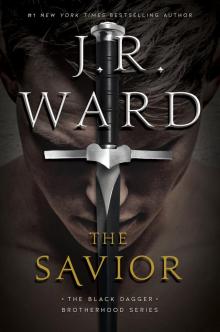 The Savior
The Savior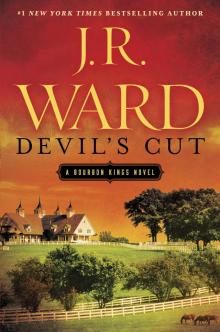 Devil's Cut
Devil's Cut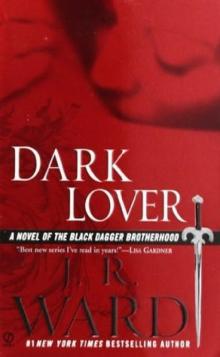 Dark Lover
Dark Lover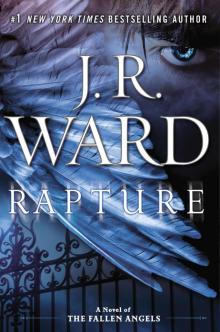 Rapture
Rapture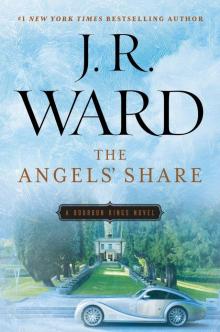 The Angels' Share
The Angels' Share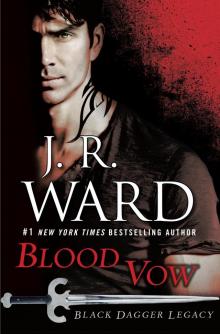 Blood Vow
Blood Vow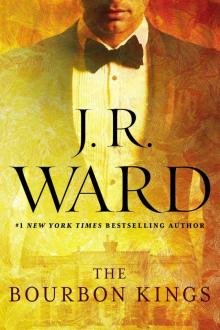 The Bourbon Kings
The Bourbon Kings The Billionaire
The Billionaire The Jackal
The Jackal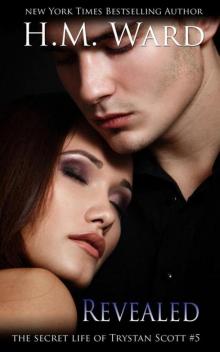 Revealed
Revealed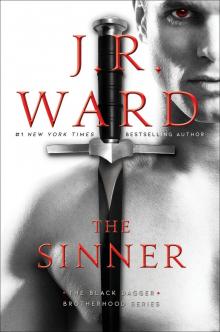 The Sinner
The Sinner The Jackal (Black Dagger Brotherhood: Prison Camp)
The Jackal (Black Dagger Brotherhood: Prison Camp)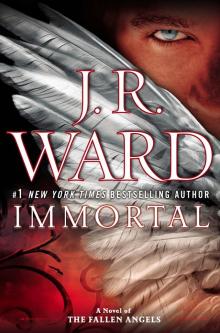 Immortal
Immortal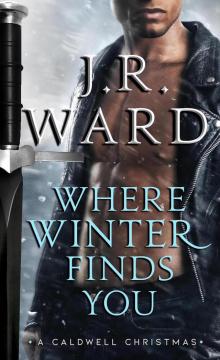 Where Winter Finds You
Where Winter Finds You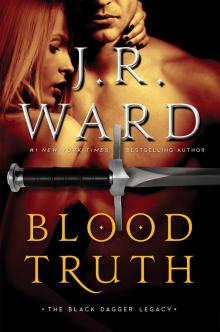 Blood Truth
Blood Truth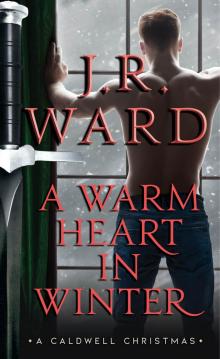 A Warm Heart in Winter
A Warm Heart in Winter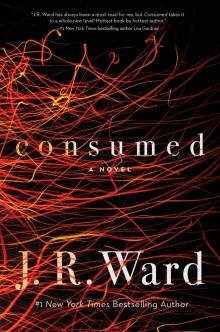 Consumed
Consumed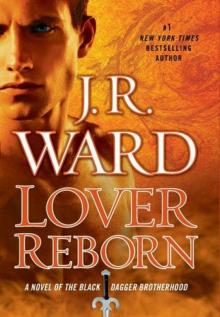 Lover Reborn tbdb-10
Lover Reborn tbdb-10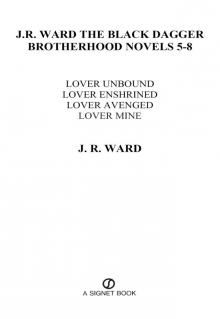 The Black Dagger Brotherhood Novels 5-8
The Black Dagger Brotherhood Novels 5-8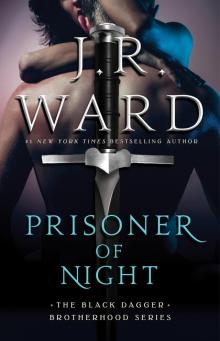 Prisoner of Night
Prisoner of Night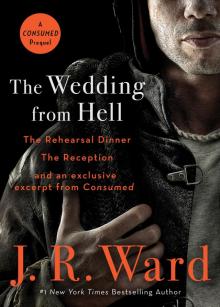 The Wedding from Hell Bind-Up
The Wedding from Hell Bind-Up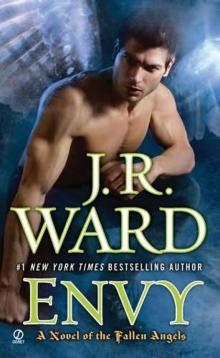 Envy fa-3
Envy fa-3![Covet - A Novel of Fallen Angels [01] Read online](http://i1.bookreadfree.com/i/03/24/covet_-_a_novel_of_fallen_angels_01_preview.jpg) Covet - A Novel of Fallen Angels [01]
Covet - A Novel of Fallen Angels [01] The Rebel
The Rebel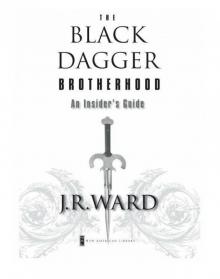 The Black Dagger Brotherhood
The Black Dagger Brotherhood The Rogue
The Rogue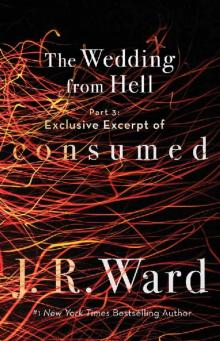 The Wedding from Hell, Part 3: Exclusive Excerpt of Consumed
The Wedding from Hell, Part 3: Exclusive Excerpt of Consumed Heart of Gold
Heart of Gold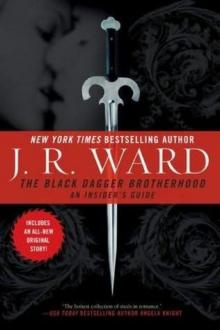 The Black Dagger Brotherhood_An Insider's Guide
The Black Dagger Brotherhood_An Insider's Guide![[Fallen Angels 01] - Covet Read online](http://i1.bookreadfree.com/i1/04/03/fallen_angels_01_-_covet_preview.jpg) [Fallen Angels 01] - Covet
[Fallen Angels 01] - Covet The Renegade
The Renegade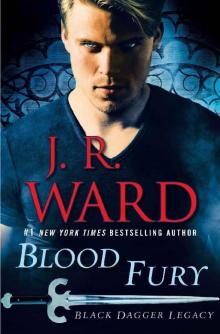 Blood Fury: Black Dagger Legacy
Blood Fury: Black Dagger Legacy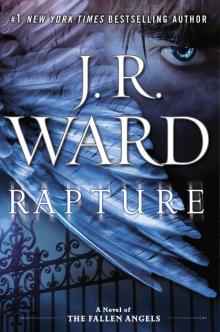 Rapture: A Novel of The Fallen Angels
Rapture: A Novel of The Fallen Angels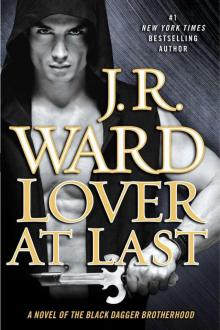 Lover At Last: A Novel of the Black Dagger Brotherhood
Lover At Last: A Novel of the Black Dagger Brotherhood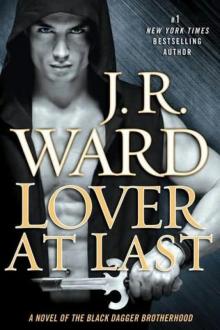 Lover At Last tbdb-11
Lover At Last tbdb-11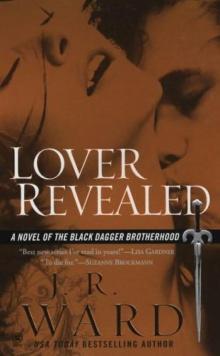 Lover Revealed tbdb-4
Lover Revealed tbdb-4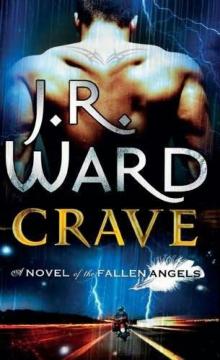 Crave fa-2
Crave fa-2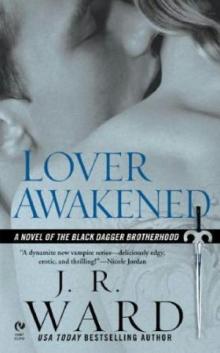 Lover Awakened tbdb-3
Lover Awakened tbdb-3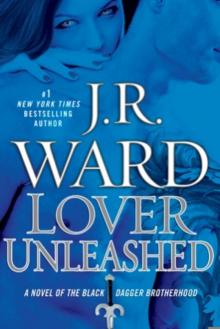 Lover Unleashed bdb-9
Lover Unleashed bdb-9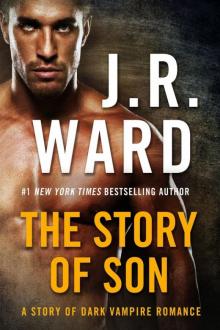 The Story of Son
The Story of Son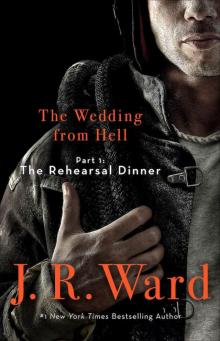 The Wedding from Hell_Part 1_The Rehearsal Dinner
The Wedding from Hell_Part 1_The Rehearsal Dinner An Irresistible Bachelor
An Irresistible Bachelor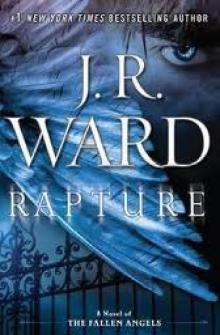 Rapture fa-4
Rapture fa-4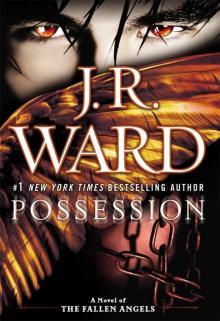 Possession fa-5
Possession fa-5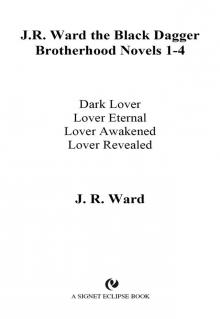 The Black Dagger Brotherhood Novels 1-4
The Black Dagger Brotherhood Novels 1-4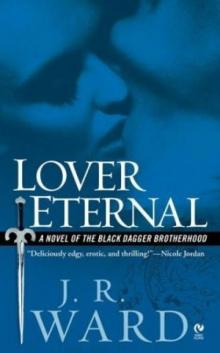 Lover Eternal tbdb-2
Lover Eternal tbdb-2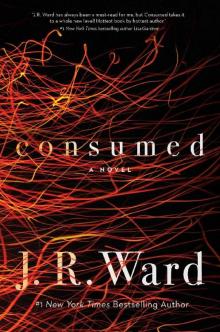 Consumed (Firefighters #1)
Consumed (Firefighters #1)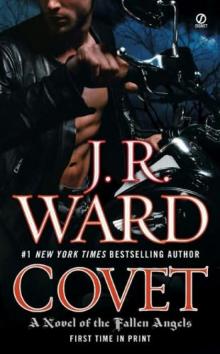 Covet fa-1
Covet fa-1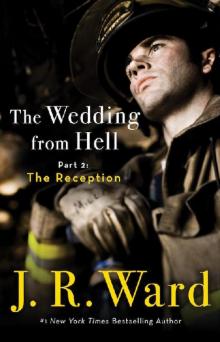 The Wedding From Hell: Part 2: The Reception
The Wedding From Hell: Part 2: The Reception Lover Reborn: A Novel of the Black Dagger Brotherhood
Lover Reborn: A Novel of the Black Dagger Brotherhood